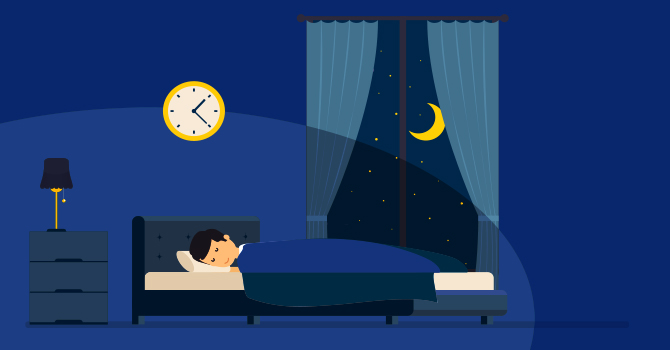Sleep is an essential part of a healthy lifestyle it is important to get enough sleep to maintain good health and well-being sleep is also important for weight loss evidence from over 100 studies has shown that there is an association between sleep loss and an increased risk of weight gain and obesity and new research suggests that losing sleep while dieting may reduce the amount of weight loss and even encourage overeating, in other words, getting adequate quality sleep may be an important part of healthy weight loss because the participants in this study who reported getting regular uninterrupted sleep did a better job sticking to their exercise and diet plans while trying to lose weight.
In a year-long weight loss program participants who had higher scores for sleep health during the program were more likely to follow the caloric intake and exercise components in comparison to their peers who scored lower for sleep health and people with better sleep health attended more of the program's sessions so focusing on obtaining good sleep [ 7 to 9 with a regular wake time, feeling refreshed upon waking and alert throughout the day ] which for most people.
May be an important behavior that helps people stick with their physical activity and dietary modification goals now as a professional who helps and supports people as they take on healthy lifestyle programs which often include weight loss as a goal I would use this information to drive home the importance of paying attention to sleep quality and sleep habits in fact if it's a topic that I 'v never explored with a client who is having a hard time losing weight.
we know that a lot of clinical trials have not included some of these groups that are at higher risk for sleep disturbance. So we did a big systematic review of all behavioral trials that address sleep issues and found that only 7 percent of those targeted any underserved group, whether it was racial/ethnic minorities, linguistic minorities, sexual minorities, or immigrants. And so that work, there's so much more work that remains to be done, but it is true, I think as a field, we have a lot more work to do in terms of implementation and trying to both adapt, test - I think testing is really important, making sure that what is being disseminated is known to be effective.
And you heard Michael allude to that, we're going to test if it's going to work. we've invested a lot of time in adapting the treatment, but it's really important before it's disseminated into any community that we know that it works. That's the hallmark of good science, and in the psychology profession, our charge is to ensure that the treatments that are being implemented are indeed evidence-based so there's also this larger scale.
Sleep is not what you'd expect as you get older seven, six and - a -half hours of sleep is certainly within the normal range once you're older than 60, 65 years of age as we age there are changes in our brain there's changes like sleep and one of the things that happen to begin as early as 35, 40, is that we being to lose that slow - wave sleep, that deep, restorative sleep and there's not much you can do to get it back as you lose it over time, but there's ways that can accelerate or slow it.
so if you drink a lot, your loss of slow-wave sleep is significantly accelerated it's very important to monitor your alcohol but as Carmela mentioned, there are pillars of health and a good diet, and particularly exercise is critical for the maintenance of good sleep So trying to do the best you can.
So see you all soon I will upload my next blog very soon and also thank you all for giving your precious time to read this blog.
Posted Using InLeo Alpha


.png?width=600&name=happy-cute-little-boy-sleep-bed-room%20(1).png)